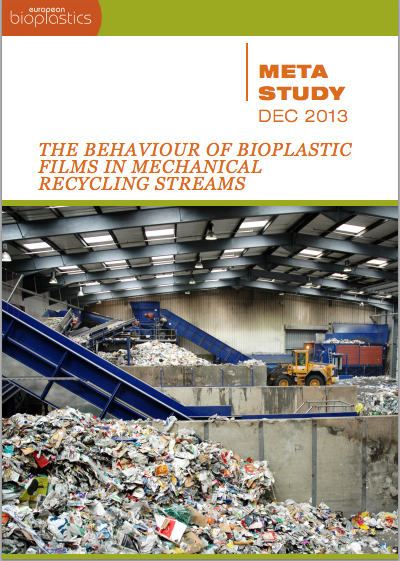For years, the waste management industry claims that bioplastics can cause a serious disturbance in the established recycling streams such as PE and PET.
In the UK in particular, the British Plastics Federation’s Recycling Group (BPFRG) have been warning the government about the compromising effects of biodegradable bags on the entire waste stream in response to a government proposal to exclude biodegradable bags from UK’s planned carrier bag tax.
According to BPFRG, biodegradable plastics of whatever kind cannot be recycled along with conventional plastics without “catastrophic effects.” The group pointed out a study done on single use bags in Wales and Ireland where biodegradable bags are included under the Irish bag tax legislation. BPFRG said an exemption from the bag tax should be given to bags with a high plastic recycled content, instead, as these could be recycled readily again and again.
BPFRG emphasized that an exemption of biodegradable bags in the bag tax could lead to a large contamination of the conventional plastic waste stream, which could ruin the integrity of recycled plastics.
In response, the trade association European Bioplastics released a study in December stating that up to 10% compostable plastics (such as PLA, PBAT, starch blends) mixing with conventional plastics in post-consumer recycling streams show no or negligible impact on the mechanical performance of the recyclates.
Compostable plastics have its designated organic recycling marked with logos such as the Seedling. However, in the event that compostable plastics end up in recycling streams, the prevalent sorting technologies are able to sort them with little residual waste, and that studies and field trials have demonstrated this, according to independent studies of the Institute for Bioplastics and Biocomposites (University of the Applied Arts and Sciences Hannover), the Italian National Packaging Consortium (CONAI), and the company Biotec.





4 responses to “Study on compostables in recycling”
Is there a push from bio-plastic lobbies (if they exist) to develop dedicated bio-plastic recycle streams? I have hear from a couple producers that their products are fully recyclable if they have their own recycle stream.
Jeff,
The only organization I know for bioplastics here in the US is the SPI Bioplastics Council. So far, I don’t hear that much push from them to develop a dedicated recycle stream although NatureWorks do try to come up on its own. Europe is really more proactive, I think, in this type of lobbying.
[…] With huge production of bioplastics and a consequent elimination of regular plastic, we can achieve 100 percent recyclability. Although this seems like a far fetched fantasy. The industry has been buzzing over concerns of bioplastics contaminating existing recycling streams and huge capital investment over bioplastic recycling projects. But recent studies have shown that this is not the case. Doris de Guzman explains these studies in her blog post ‘Study on compostables in recycling‘. […]
[…] For years, the waste management industry claims that bioplastics can cause a serious disturbance in the established recycling streams such as PE and PET. In the UK in particular, the British Plastics Federation's Recycling … […]